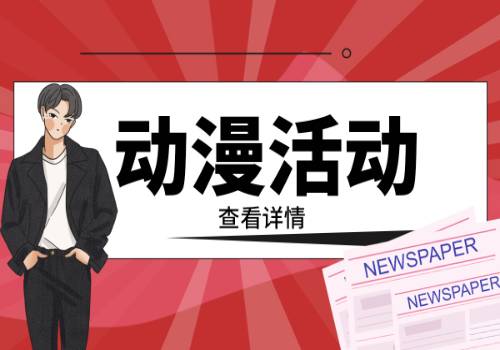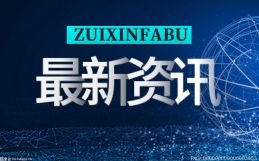A white unicorn standing in front of a snowy mountain (Image source: Wallpapers)
BEIJING, June 25 (TiPost) -- While 2022 marked the first winter for technology unicorns, it is even harsher this year for unicorns across the world, particularly Chinese unicorns.
 (资料图片)
(资料图片)
The term “unicorn”, coined by venture capitalist Aileen Lee in 2013, refers to startups with valuations of $1 billion or more that are not yet publicly traded. Over the past decade, the number of unicorns has exploded. According to TiPost statistics, the number of unicorn companies in China and the United States increased by three per year from 2012 through 2020; by nearly 200 in 2021, and by 184 in 2022. Despite the rise in the number of unicorns, they struggled for financing.
Following the shutdown of WM Motor and Levdeo, the two affiliated companies of new energy vehicle unicorn Byton with a valuation of up to 20 billion yuan, filed for bankruptcy in mid-June, burning 8.4 billion yuan without producing a single car. Mininglamp, an AI star unicorn invested by Tencent and Sequoia China, has laid off thousands of people, or about 70% of total employees. Another unicorn Cloopen, which once had a market value of up to 50 billion yuan as the "first Chinese SaaS company going to the US," was ordered to suspend trading by the New York Stock Exchange in May of this year, triggering a class action lawsuit by investors. Overnight, its market value plummeted to $55.
In late May, OPPO, a unicorn in the mobile phone manufacturing industry with a valuation of 165 billion yuan, suddenly closed down its chip business subsidiary, ZEKU. Overnight, more than 3,000 ZEKU employees lost their jobs, and more than 10 billion yuan of capital was burned, becoming a landmark event in the history of China"s chip industry.
In mid-June, following the collapse of Weltmeister and Levdeo, the two affiliated companies of new energy vehicle unicorn Byton, with a valuation of up to 20 billion yuan, filed for bankruptcy, burning 8.4 billion yuan without producing any cars. Mininglamp, an AI star unicorn invested by Tencent and Sequoia China, has laid off thousands of people, or 70% of total employees. Cloopen, which once had a market value of up to 50 billion yuan as the "first Chinese SaaS company listed in the US", was ordered to suspend trading by the New York Stock Exchange in May of this year, triggering a class action lawsuit from investors. Overnight, its market value plummeted to $55...
The above-mentioned troubles are not only happening in China, but also across the world.
On June 17, Silicon Valley hydrogen fuel electric truck unicorn Nikola announced a layoff of 270 people, with the latest market value plummeting by 91.6% compared to when it went public; Embark, a self-driving truck unicorn valued at $5.2 billion, recently announced its closure, with hundreds of employees directly laid off; in early June of this year, Zume, a US robot pizza unicorn that received a whopping investment of 2.6 billion yuan from SoftBank"s Masayoshi Son, announced its closure due to insolvency.
According to a report by research firm PitchBook, since 2021, more than 400 unicorn companies (accounting for 1/3 of all unicorn companies) have failed to raise new funds, and about 94% of technology unicorn companies are not profitable.
The report also pointed out that in the first quarter of 2023, only 5 new unicorn companies were added globally, setting a new low in quarterly history, compared to 185 new unicorns added last year; at the same time, only 5 unicorns were listed/merged this year, far lower than the same period last year, further proving that global capital"s interest in technology unicorn companies is declining. The report states that about 7.5% of unicorn venture capital financing in the United States has failed.
"Capital has been hyping up "hard tech unicorns," but some companies have only relied on PPT to raise angel round funding with a valuation of hundreds of millions, but the companies themselves have no commercialization capabilities," a venture capitalist told TiPost App, adding that many VCs do not understand industry rules and only follow research reports and gamble on company targets, resulting in industry bubbles.
Vincent Harrison, a venture capital analyst at PitchBook, told TiPost App that to a large extent, high burn rates, lack of cash flow, and poor profitability are the "culprits" that have prevented some unicorns from getting investment. He frankly stated that the valuations of many hard tech unicorns born in the past few years have been significantly overestimated.
RMB Funds invest in angel and pre-IPO rounds only, leaving unicorns struggling to make ends meetOne day in early June, the Qijitech 2023 Spring Roadshow hosted by former Microsoft Global Executive Vice President Lu Qi was held in Haidian, Beijing, with 70% of the projects being AI large models.
As TiPost App saw at the event, due to the easing of the epidemic and the current AI large model trend, the venue was packed, and even Zhu Xiaohu, the managing director of GGV Capital, listened to the entire event from start to finish.
However, TiPost App learned from discussions with some investors after the conference that many VCs were not eager to invest. Only a few projects announced financing information after the conference, and most investors were simply asking for information. This is very different from a few years ago when many investors rushed forward, squeezed into the crowd, and communicated with founders to gain knowledge and improve their situation in unknown fields.
Looking but not investing is a new trend and phenomenon in this round of investment institutions. Behind this trend is the changing investment environment and logic in the era of hard technology.
Here are some data to share: in the first quarter of 2023, in the fundraising side of China"s equity investment market, the number of newly raised funds and the amount were 1601 and RMB 353.212 billion, respectively, down 7.6% and 33% year-on-year, while on the investment side, the total number of investment cases was 1722, down 44.2% year-on-year, with an investment amount of RMB 130.03 billion, down 49.8% year-on-year, and hard technology remained the investment focus. In terms of exits, the total number of exit cases was 521, down 51.5% year-on-year, and the number of various types of exit transactions decreased, among which 372 IPOs of invested enterprises occurred, down 38.7% year-on-year.
Of course, this is not just happening in China. According to the KPMG Venture Pulse Report for Q1 2023, global venture capital has dropped from 9,619 deals and a total amount of USD 86 billion in Q4 2022 to 6,030 deals and USD 57.3 billion in Q1 2023, with a QoQ decline of 93% in total investment amount. At the same time, it is less than one-third of Q1 2022 (USD 177.6 billion). Whether in the Americas, Europe or Asia, venture capital in each region has fallen to the lowest level in years.
Venture capital markets: Credit:KPMG
Overall, the three links of fundraising, investment, and exit in the global venture capital market have all experienced large-scale declines. Such declines have occurred even after the pandemic was released in 2023 and when the market was still significantly affected by the pandemic in 2022, indicating a clear perception of the market difference.
In fact, "hard technology" does not have a precise definition. Generally, it refers to key technologies that can improve the production efficiency of social material products and create new social values. It is a knowledge-intensive industry formed by accumulating a large amount of R&D investment and relying on core patented technologies to transform into high-tech products or services. Currently, hard technology is mainly reflected in fields such as optoelectronic chips, artificial intelligence, aerospace, biotechnology, information technology, new materials, new energy, and intelligent manufacturing.
In 2013, venture capitalist Aileen Lee created the term "unicorn" to describe startups with valuations of $1 billion or more that are not yet publicly traded. Over the past decade, the number of unicorns has grown crazily. According to TiPost App statistics, the number of unicorn companies in China and the United States has increased by nearly 200 since around three in 2012, and 184 technology unicorns were added in the past year.
"Currently, most investors in the domestic hard technology investment circle are starting to invest in both angel rounds and Pre-IPO rounds because the risks are relatively small and the cost of investment is low." Liu Di, managing director of Shengjing Jiacheng, told TiPost App that as the market changes, many RMB fund investors are starting to resist risks and the decision cost of investing in "both heads" is relatively low. Nowadays, many investors cannot let companies grow relatively steadily and across the entire cycle. This is one of the reasons why hard technology unicorns are difficult to finance.
Compared with ordinary consumer and internet unicorn companies, hard technology enterprises require a large amount of capital, so it almost only takes an "angel round" to reach a valuation of $1 billion. Investors say, "Don"t talk about how good the meal I cooked is. I need a "unicorn" to buy a pot."
"The unicorn itself is a valuation system, which depends on the dilution ratio of financing, not the industry," Liu Di mentioned. Previously, when Internet companies were financing, if they raised one hundred million yuan in one round and were diluted by 10%, they would burn money to expand their scale. Once they reached the expected market expansion rate or market share, they could raise another round of financing. After two or three rounds of financing, they became "unicorns." However, now hard technology is different, and the funding needs are huge. One round is tens of billions of dollars, so the probability of becoming a "unicorn" is higher.
"From the perspective of an entrepreneur, I should be using funds to solve the most pressing needs such as technology research and development and talent recruitment. However, now investors don"t care whether you"re capable or not, they just pile money on you and see what you can do. So, in my opinion, this is an issue of the efficiency of fund utilization and is an abnormal phenomenon," Liu Di told TiPost App.
Liu Di frankly stated that high-tech products such as chips cannot be completed in just one or two years. It takes 3-5 years of long-term research and development. During this process, enterprises still need financing to invest in technology research and development, talent recruitment, etc. However, the use of funds from "RMB funds" has a time limit, and investors cannot wait. When the capital market environment is good, enterprises can rely on stories to finance, but when external pressures increase, many industries cannot sustain the burn, and investors may become more realistic. Especially after the angel round investment, investor demands increase, requiring products, commercialization, ecology, etc. Once these demands are not met, "hard-tech unicorns" will find it difficult to continue to obtain financing.
So, this kind of investment model may lead to problems such as unicorns" valuations shrinking within two to three years, and large-scale layoffs within the company.
TiPost App recently learned about a case in the commercial aerospace track. A nine-year-old commercial aerospace unicorn company with a luxurious investment team, including state-owned capital, private equity, venture capital institutions, etc., had a valuation of over 10 billion. However, it has not publicly raised any funds in the past four years, which directly resulted in a shortage of internal funds.
It is worth noting that commercial aerospace requires a large and sustained amount of funding. The launch cost of a commercial launch vehicle is as high as $10,000 to $20,000 per kilogram. The rocket propulsion system costs about 60% of the upstream rocket component cost, and labor and factory construction and maintenance costs are also high. However, due to the company"s failure to launch successfully, the investment trust has declined. TiPost App received feedback from an investor, stating, "If the company fails to launch successfully, I will no longer provide financing."
In response to the difficult financing situation, the CEO of this company recently told TiPost App that the commercial aerospace industry has passed the storytelling stage and it is difficult to finance based on vision and mission. Instead, it is necessary to objectively evaluate the company internally. "If a launch fails, confidence will definitely be severely damaged, not only externally, but also internally. This is a certainty. But even if I fail, I have to continue moving forward. I know that I will either die or start from scratch and make it to the top."
It"s not just one company, there are multiple unusual phenomena in the entire commercial aerospace field: a private rocket company just announced a 600 million yuan financing, but then a local "RMB fund" changed its mind and only agreed to partially fund it; a founder team with no aerospace technical background easily gained the favor of state-owned assets, raised over 1 billion yuan in just three years, and became a leading player in the field with an estimated valuation of nearly 4 billion yuan. However, now the founding team collectively fled, investors woke up from their dreams, the company is short of funds, high-level technical staff frequently resign, and the company frequently lays off employees.
Overall, after two years of investment frenzy, the domestic commercial aerospace "hard technology" field is now in a state of investment "cooling," and coupled with fierce competition from the "national team," investors are no longer interested in this field.
According to estimates by TiPost App, since early 2023, the public financing of the domestic commercial aerospace field has not exceeded 2 billion yuan, far lower than the financing scale of over 4 billion US dollars in 2020.
Nowadays, many VC investors and institutions avoid discussing the commercial aerospace industry. The strong entry of state-owned assets is not good news for the commercial aerospace field. Many industry insiders complained to TiPost App that many people in the urban investment departments of many places actually do not understand the aerospace industry. It is just that commercial aerospace belongs to the manufacturing industry, and the state supports local investment. Moreover, the urban investment can only take money once, and the enterprise valuation will directly double. The next round of entrepreneurs can only lower the valuation to seek market "connections" or seek two paths of listing.
"In the field of hard technology, this type of state-owned "RMB fund" is the last path for companies without options," a investor told TiPost App.
It"s not just in China, "hard tech unicorns" abroad have also seen their valuations shrink and companies face financing difficulties. Recently, the US online payment and information service giant Stripe completed a new round of financing, raising $6.5 billion, with investors including a16z, Founders Fund, and Goldman Sachs. However, after this round of financing, Stripe"s valuation has dropped to $50 billion, a significant drop from its record valuation of $95 billion in 2021.
In just two years, Stripe went from the fourth most valuable unicorn company in the world, second only to ByteDance, SpaceX, and SHEIN, to facing financing difficulties and a valuation shrinkage of nearly 50%.
Meanwhile, hard tech unicorns listed in the US are also facing pressures. As of this year, US new energy photovoltaic unicorn Ascent Solar Technologies (NASDAQ: ASTI) has fallen by 91%; US solar giant SunRun (NASDAQ: RUN) has fallen by 20.27%; laser radar chip unicorn HSAI (NASDAQ: HSAI) has fallen by 43.11%; Ronglian Cloud has fallen by 99.62%; and NIO (NYSE: NIO) has fallen by 5.82%.
"Essentially, it is a structural problem in China"s capital market. The primary market looks at how much money the company lacks, while the secondary market looks at the company"s performance and value, that is, how much the company is worth. Investors in the primary and secondary markets have different understandings of most industries," said Liu Di, adding that currently there is an inverted valuation between the primary and secondary markets. Compared with the good exit mechanism for entrepreneurial companies in the US, China needs to seek a multi-level capital market structure.
Government-led RMB funds dominating in China nowReality is always more exciting than words on paper.
"In the past, we raised U.S. dollars, spoke English, held red wine glasses, and now we raise RMB, we go to "guan dan", talk about investment and talk about counter-investment; before, we went to Beijing, Shanghai, Guangzhou and Shenzhen for business trips, now we have to go to Hefei, Ganzhou, and recently I went to a county to see a new materials project. I don"t think this is called sinking, this is called falling; in the past, the LP (limited partner) asked me the most about the ranking of my fund in the industry, now when raising funds, I have to talk about the macro situation, the trend of the Russo-Ukrainian war, and make LP full of confidence in the future of the world." Recently, the founder and general partner of Plum Ventures, Wu Shichun"s improvised speech has gone viral, and everyone is watching and reflecting on the changes in investment.
Wu Shichun candidly stated that in the past, when investing in the internet era, all they needed to do was to see if the founder had internet thinking. Now, "hard tech" requires understanding of technology, superconductivity, synthetic biology, and ChatGPT. "I need to learn new knowledge crazily every day, 7x24 hours, not even letting go when I go to the bathroom. So every day I"m like reviewing "memorials", looking at what my friends and colleagues are posting on their social media, pretending to understand what I don"t."
The investment logic of hard tech has undergone a transformation.
In early May, at a closed-door roundtable held by the School of Management at Fudan University, Professor Zhang Xiaolei (pseudonym) stated that state-owned capital dominates the current investment environment in China"s hard-tech industry. Whether it is local guidance funds or state-owned LPs (limited partners), or state-owned enterprises listed on the stock market, they are in unfair competition with private capital (such as USD funds). In the past two years, private capital has been reluctant to invest, while state-owned assets have become "unbridled wild horses", resulting in a mismatch of resources and a focus on "quick money-making", which is not conducive to China"s technological innovation breakthroughs and industrial development.
According to a report by KPMG, in 2022, in an environment of overall sluggish fundraising market, government-guided funds have greatly increased in scale, with newly established funds reaching $135.3 billion, more than twice that of 2021, surpassing the $92.9 billion before the pandemic in 2019. Funds over $2 billion account for 58% of the total size of guided funds, with a focus on cutting-edge technology and advanced manufacturing. According to data from Every News, government-guided funds account for nearly 80% of China"s mother fund market as a whole.
"There is a difference between state-owned capital and private capital. Private capital may prioritize profitability, while state-owned capital prioritizes politics, followed by security and profitability," said a graduate of Fudan University and investor. "But each has its role, and it is not necessary to only invest in a market-oriented way. You should allow for diversification and not be fixated on whether it is state-owned or private capital investment. If a company can develop, then any form of investment is okay. Therefore, I think we need to change this mindset."
In fact, under the backdrop of government-guided funds dominating the market, investment has become more difficult.
The logic behind dollar-denominated funds is to take high risks for a huge return. However, the game and product mechanisms of venture capital do not completely match the demands of government limited partners (LPs). The government-guided funds need to ensure capital preservation, complete investment attraction, and avoid project failures. Therefore, the high-risk investment logic is no longer feasible. "The biggest difference in performance evaluation between dollar-denominated LPs and RMB-denominated LPs is that dollar-denominated LPs only look at the total, while RMB-denominated LPs also look at the process."
This prioritization of "safety" directly leads to rampant "betting" between capital and enterprises.
In April of this year, AI company Fourth Paradigm submitted its latest prospectus to the Hong Kong Stock Exchange, showing that a supplementary agreement signed by Fourth Paradigm and shareholders including Sequoia in January 2023 would trigger most shareholders" special rights to withdraw their investment if Fourth Paradigm fails to go public before December 30, 2023. The previous deadline was June 2023.Industrial ceramic valve company "Yantai Jintai Meilin Technology" submitted a prospectus to the Beijing Stock Exchange, showing that Yeda Caisheng Venture Capital and the company"s chairman Li Ping and general manager Jin Haojun signed a supplementary agreement. According to the agreement, Jintai Meilin should publicly issue qualified shares and go public before December 31, 2024, and even requires that the audited net profit for 2022-2024 must be no less than 100 million yuan. If the net profit for the above three years audited after 2024 is less than 80% of the performance commitment target, namely the total net profit is less than 80 million yuan, it will be regarded as not achieving the operating target.In 2016, the investor of Nanjing Gaoke signed a gamble agreement with the shareholder and actual controller of Shuoshi Bio, subscribing for a price of 100 million yuan. In 2019, Shuoshi Bio successfully landed on the Sci-Tech Innovation Board, and in July 2020, the stock price exceeded 400 yuan. The investor of Nanjing Gaoke claimed the "right to sell back after listing" during the lock-up period, with a total repurchase price of 768 million yuan. However, Shuoshi Bio did not pay this amount.On February 17th of this year, with the official implementation of the registration-based system, the China Securities Regulatory Commission and the stock exchanges issued a series of rules and regulations, including the release of the "Regulatory Rules Application Guidelines - Issuance No. 4", which added a "null and void from the beginning" processing rule for "gamble agreements", further regulating the "gamble agreements" between enterprises and shareholders.
Professor Zhang Xiaolei believes that state-owned capital is constantly gambling with enterprises because they sometimes lack tolerance for technological innovation. "The first requirement of state-owned capital is safety, so they have tremendous pressure and must study investment with extremely low risk." He pointed out that in places where urban investment is strong, there will be a lot of quick money to be made, but the relative strength of technological innovation will be much smaller.
Zhang Xiaolei stated that entrepreneurs who emerged in the Internet era used innovative Internet business models to drive regional market development. However, only the fourth generation of science and technology innovation enterprises, entrepreneurs who are not starting a business to escape poverty or become rich, but to pursue their dreams and aspirations, to turn technology into products, to realize wishes and dreams, to benefit society, and to make money for themselves are the best. "But many capital providers do not understand this."
Liu Di believes that the core problem facing current hard technology enterprises is that there is no support for the end-users and scenarios where hard technology needs to be used in large quantities, and the current situation is just meeting the demand for "domestic substitution". "Being able to develop a product is one thing, but market recognition is another matter. Currently, most people are still focused on the former."
In fact, the demands of VC selection for projects have undergone tremendous changes.
Blue Elephant Venture Capital expressed to TiPost App that "in the current environment, investment in hard technology is shifting from growth logic to profit logic. It hopes that enterprises can continuously launch competitive products and pay attention to all factors related to the survival of the enterprise. The environment has changed, and startups must adapt to the current environment to cope with fluctuations and build longer-term advantages."
It is reported that Blue Elephant Venture Capital values disruptive innovation investment opportunities that can solve bottleneck technologies, bring significant efficiency or experience improvements, and focus on and layout specific areas including robotics, intelligent interaction, intelligent manufacturing, new energy, AI underlying and applications, enterprise software, industrial digitization, and other fields.
Vincent Harrison told TiPost App that the investment market is in a correction period, and there will still be more "unicorns" in the future in the field of hard technology, but it may focus again on companies with strong EBITDA (pre-tax, pre-interest, depreciation, and amortization profits), future cash flow, and other indicators, and pay premiums for them. He stated that it remains to be seen what impact the bubble of uncertain generative AI will have on unicorns.
In Liu Di"s view, the underlying factors of AI large models are mainly data, computing power, and algorithms. Currently, the core technology is relatively easy, with the computing power requiring Nvidia graphics cards, and the algorithms being open source. However, there are regulatory restrictions on data, which has led to a decrease in investors" interest. "This means that everyone"s starting line is the same, so the difference in level is not significant." He believes that investors are currently more interested in seeing startup projects in monopolized tracks.
Liu Di stated to TiPost App that looking at the trend for the next 3-5 years, domestic "hard tech unicorns" will all be invested in by RMB funds. Under high requirements, the company as a whole may go public, but the stock price situation after going public may not be as expected. Relatively speaking, this will test the difficulty of RMB fund managers, and the timing of exiting is essential.
"China"s capital market has already started to differentiate. Previously, RMB funds and USD funds, the "dual-currency funds," were mediating between the two. Now, USD funds are mainly focused on overseas space, while the investment targets of RMB fund LPs are very clear." Liu Di said that only if the country values long-term investments in hard technology in the future, will there be a significant change in this investment logic. (This article was first published on TiPost App, author | Lin Zhijia)
关键词:










